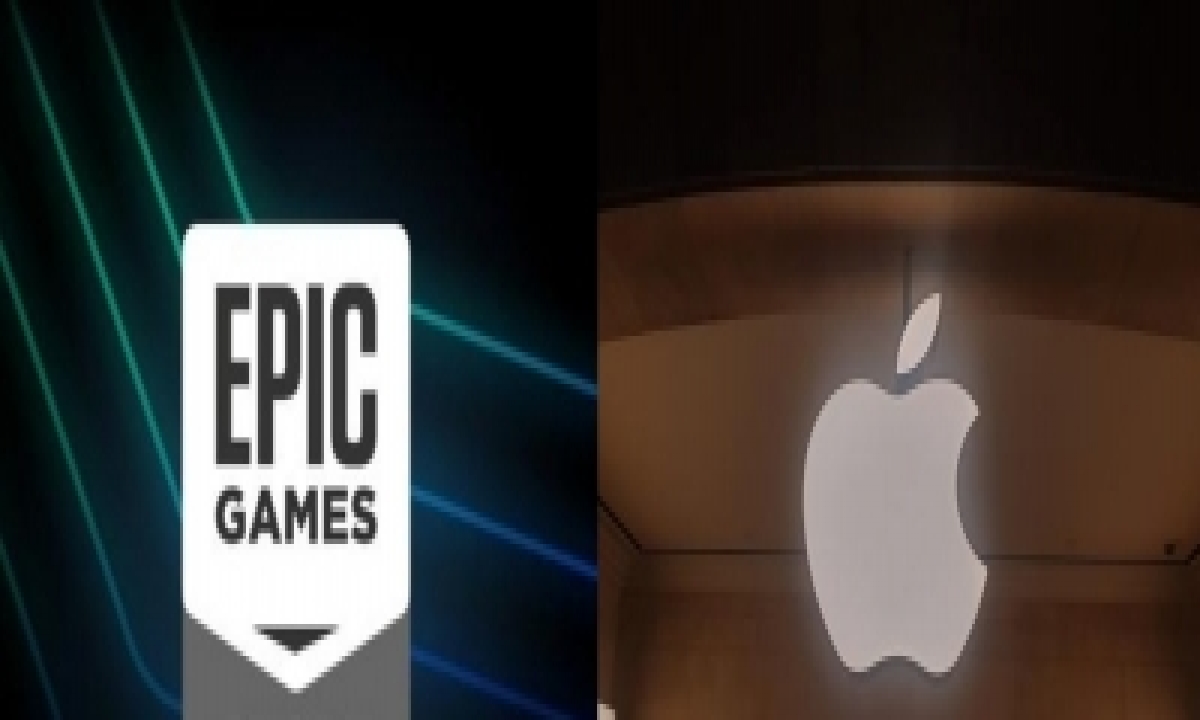By Nikhila NatarajanNew York, Sep 12 : Both Apple and legal challenger, Epic Games, seem headed for appeal against a 185-page ruling delivered in a California court on Friday.
“It’s a split decision,” Stanford don Mark Lemley, who studies antitrust issues and technology, put it succinctly to NPR.
“It will improve competition on the edges, but it’s not the fundamental change that Epic and advocates of the antitrust case would have hoped for.”
NPR discloses a funding relationship with Apple.
On Friday, US district judge Yvonne Gonzalez Rogers created ripples worldwide, agreeing that Apple is forcing folks to pay for apps and in-app items through its App Store, where it usually takes a 30 per cent slice of the payment as commission.
Rogers, who famously grilled Apple chief Tim Cook for four hours earlier this year, told the company to ease up and let in other payment options within 90 days.
But that, as Stanford’s Lemley argued, seems a lot less than what Epic sought.
First, an appeals process ensures that no changes will come anytime soon.
Next, Rogers has upheld that the App Store’s overall structure is legal and Apple does not have an illegal monopoly over how developers can process payments for mobile games.
Epic, meanwhile, has been violating Apple’s rules and allowing customers to buy credits for its popular game, Fortnite, through its own system on a 30 per cent discount (because there is no Apple levy involved).
This, in effect, challenges Apple to kick it out.Here the judge has ruled that Epic is in breach of contract on $12 million of revenue.So, as the judge said, Epic owes Apple 30 per cent of that amount, per the terms of its contract.
Epic has a “Project Liberty” PR blitz, including a #FreeFortnite hashtag and a video mocking a famous Apple ad from 1984.Unless revised by the appeals court, Friday’s ruling means the bill for this PR and hashtag will be $3.6 million.
The “split decision” includes Apple’s justification of the commission.Here, the judge has said that “the 30 per cent is not tied to anything in particular and can be changed,” without specifically ordering Apple to do so.
To Epic’s embarrassment, she has noted that while the litigant chose to target Apple (and Google) over the fee, Nintendo’s Switch, Microsoft’s Xbox and Sony’s PlayStation, all charging a similar cut on game sales, have been left alone.
“Antitrust law doesn’t let you complain that the prices are too high,” Prof Lemley explained.“You have to show that some sort of conduct is preventing competition.”
That said, Epic’s breach in the famed walled garden is there to see.It could trigger the most consequential changes yet to the multibillion-dollar mobile economy.
The judge hasn’t gone as far as Epic Games had hoped, yet she has dug a foundational faultline in the all-powerful fortress over how apps are distributed on iPhones and iPads.
No surprises, however, Epic is unhappy that Apple hasn’t been declared an illegal monopoly.Apple’s competitors remain included in the definition of the “relevant market”.
Judge Rogers concluded that this fight was not about how digital video games are distributed – unlike what Epic had argued – but how digital video game payments are processed.And in that market, which includes gaming outside of iPhones and iPads, there’s a lot of competition.
Developers would want Epic to win an appeal more convincingly.That alone will help them secure the 30 per cent delta.
A separate case Epic filed against Google is scheduled to go to trial this year.
US Congress has already introduced legislation to rein in the tech giants’ strict App Store policies.
Elsewhere, South Korea recently banned Apple (and Google) from forcing developers to use its payment system
.






